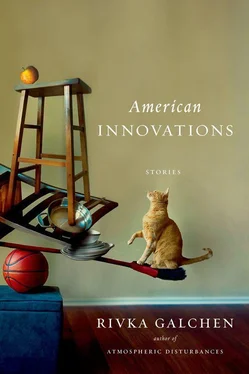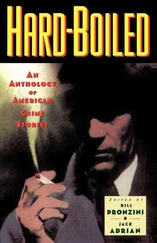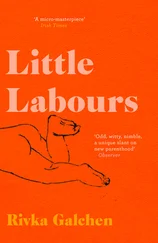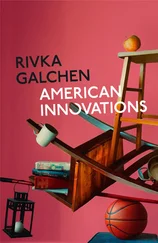I heard voices. Two men were carrying my dining table. The taller one, an orange-haired man with black-rimmed glasses and tight dark jeans, seemed to be the one in charge.
“Nope, it’s not my stuff,” he proclaimed. “I’m just helping. She’s bringing her truck round to load up for the day.”
“This is the dipsy dumpster,” I said. The phrase was assailing me.
“There’s good space here”—he gestured widely—“to pull in for loading.”
“She bought this stuff, or she’s selling it?” I asked Tall, in a voice as gentle as I could muster, one that I hoped came across as tenderly demanding.
The lesser man had walked away; he was gesturing to the taller man to join him. “I guess I’m not the person you should talk to,” Tall said with finality, but standing still, as his companion looked on, irritated, waiting. I wanted Tall to choose me over Lesser. “I think this is what didn’t sell, but I really don’t know.”
“Huh.” So they were unwanted, my things. Excellent. Fortunate. I continued to stand still. Tall also stayed still. Did the vendor — She — look like me? I didn’t ask. Very quietly and calmly I asked instead, “Well, what about … well … do you know … the price of that itty-bitty fork over there?”
Two dollars, he said. I asked after the quilt. He said he believed it was handmade by a coterie — he used that term, “coterie”—of older women in a small town in Louisiana. He believed she was asking $160 but thought I could probably get it for $140.
Lies don’t bother me much; that wasn’t the thing. What saddened me was that these things had tried to make it on their own and had failed. I set myself up, alone, on one of the blue kitchen stools and waited for her. Whoever She was. Whatever truck She might be driving. The Watchtower’s face remained obscured, so I don’t know how time passed, or how much of it did. Time can be the ultimate in fickleness, the ultimate in reliability. A white pickup truck did eventually reverse into the lot. A woman, yes, emerged from the driver’s side. She had lusterless blond hair and prominent teeth, and if She had begun to whinny, it wouldn’t have surprised me much. “Disappointed” is not the right word, but it’s neighborly with it.
“You shouldn’t leave your stuff just out here, like old milk cartons,” I chastened.
She didn’t look grateful for the advice.
I pulled out my checkbook.
“I only take cash,” she informed me chewingly.
“I intend to get lots of things.” More if she had more. She couldn’t take a credit card? But surely she’d wait for me while I ran out to an ATM?
“No. Won’t wait.”
“Really?”
“It’s cash now or cry.”
Maybe I should have been kinder upon our initial introduction. Or meaner. “Were you even in the market today? I was there. Aren’t you here to sell things? Aren’t you a seller? I’m a buyer. Isn’t it exactly me that you spend your life hoping to meet?”
“I need to get home,” she said, shrugging. “I live in New Hampshire.”
“No, you don’t.”
She stared at me. “I’ll probably be back next weekend.” A pause then. “I expect I’ll have more quilts.”
I didn’t hate that woman. I really didn’t. Truth be told, I was gaining some much-needed perspective. Distance, it’s sometimes called. She’s a small potato, I was thinking. If I bide my time, if I quietly observe, if I seek the expertise of others, I can find the man behind it all. Wasn’t that the way it was in the movies? You gathered information patiently. You didn’t pounce right away. I walked into the Seventy-eighth Precinct police station with my just reclaimed fork and pale blue blankie in hand.
A man there, at a desk.
Uniforms make me think of people as things, which is by no means necessarily a denigration.
“What was the vendor’s name?”
She was just out by the dumpsters. I didn’t get her name. She had horse teeth.
The man sighed with genuine emotion. It made his chest heave in, and out, then in and out again, more softly. I hadn’t really been looking at him. But that gentle sigh made me notice him. Tall and softly formidable — tubby, I guess — with a buzz cut and a face that seemed very drawable.
“Let’s go back to the beginning,” he murmured without judgment. “Tell me where you live.”
His eyes were beautiful and gray-green. He was, somehow, very real. Maybe the uniform contributed to that. He emanated unarticulated hopes and maybe suffering and fear and maybe a great capacity for love, even an ability to love things he had not yet known for years and years. Mister Pretty, I dubbed him. Mister Real Pretty.
“Miss? I was asking for your home address?” A hint of impatience.
My mom — she would have frowned upon my interest in a police officer. Or been far too excited about it. It struck me that I could offer to take him to bed, to that strange bed in my pretend dorm room rental, in my wrong life. They’ve done studies on these things, and they say that most men happily agree to such offers.
“Do you live near here?” I asked, in turn.
He seemed not to hear that, or able to pretend not to have heard it.
“Do these Wanted posters”—I went on—“ever really solve anything? These people, they all look the same.”
“Can we focus, ma’am? Your address.” I didn’t say anything. “Unfortunately, we’ve got loads to do here, and weekends are understaffed, so if we could get these basics filled out as quickly as—”
But when love is real, there’s no such thing as Time. I wasn’t the criminal, was I? I wasn’t Wanted. Mistakes could be made, though. Misidentifications. But one must be treated with respect regardless. I’ve had so many bad ideas in my life. I needed to be a new woman.
I knew I couldn’t give him my address. Not my former address, and certainly not my current one. It would just make it that much easier to find me. Even if this guy in particular was absolutely trustworthy, an angel. Still, things could get … out of his hands. I had just begun to reclaim my life. I held my fork and quilt closer. I would never give my address out again. At no time and at no temperature. And if they somehow got my new address anyhow, I would keep on moving.
“I’m sorry to have taken your time,” I said to that man, with longing, and anger, and regret, and resolve. “I really am so sorry.”
I stepped back out into the salubrious cold. My mom. I knew where she lived. Or used to live. When had we last spoken? Had we argued? She had never even seen that studio where I had lived so happily for a long time. There were so many things that we had in common. Even owned in common, kind of. She might have advice for me. I wouldn’t necessarily have to take it. I could put my hair in braids. I could stay with her awhile.
Willing Davidson provided essential editorial advice for almost all of these stories; I am likewise indebted to Eric Chinski, Carin Besser, Deborah Treisman, Claire Gutierrez, Ben Metcalf, Joanna Yas, and Jared Bland. The literary agent Bill Clegg has also been a wonder. I am furthermore grateful for the support of the Dorothy and Lewis B. Cullman Center for Scholars and Writers at the New York Public Library, the Mary Ellen von der Heyden Fiction Fellowship of the American Academy in Berlin, and the Hald Hovedgaard Danish-American Writers’ Retreat.
Rivka Galchen is the recipient of a William Saroyan International Prize for Fiction Writing and a Rona Jaffe Foundation Writers’ Award, among other distinctions. She writes regularly for The New Yorker , whose editors selected her for their list of “20 Under 40” American fiction writers in 2010. Her debut novel, the critically acclaimed Atmospheric Disturbances , was published by FSG in 2008.
Конец ознакомительного отрывка
Купить книгу












